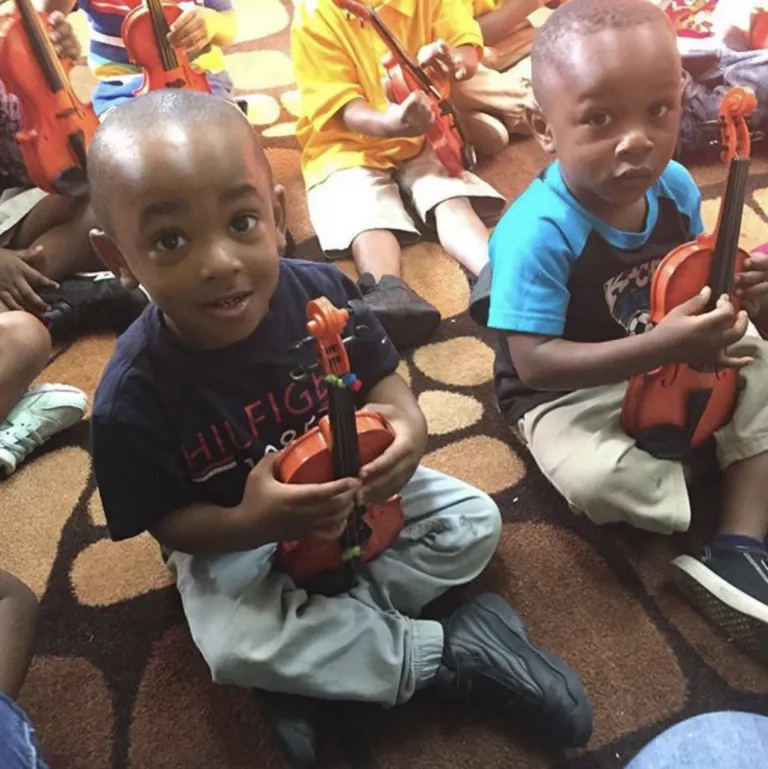Blog
“I believe that we are all connected through music and that every child has been blessed with an internal rhythm and creativity that is unique to their personality and connects them to others. It is our responsibility as educators to create a nurturing environment that helps guide and cultivate the expression of their inner rhythm by providing a high-quality, fun, and engaging experience with all types of musical forms. I believe that music education can be both structured and spontaneous, guided and free, colorful, emotional, and transformational—all at the same time.”
– Portia Dunkley

Five Benefits Music Can Have on Your Child’s Emotional Health!
There are several ways that music can help with early childhood development. Beginning with being a means for self-expression and allowing a child’s creativity to shine. Below are five ways music can build your child’s creativity and emotional health.
1. Self-Expression
When children begin to learn how to adapt their favorite songs to create their own styles, not only does it help to build their self-esteem, but it helps them express their thoughts and emotions through a different language-music.
2. Improved Happiness Levels
Students who were studying music often reported more positive emotions like optimism, joy, and friendliness after listening to or working with music. The students often reported that if they were already feeling happy, the music made them happier, and if they were in a bad mood, the music alleviated it.
3. Music Can Decrease Stress Levels
Music can lower blood pressure, increase dopamine levels and decrease feelings of distress. Music can also help improve recovery following an illness or surgery.
4. Music Can Lead to Better Math and Science Scores
Parag Chordia, a musician and mathematician developed a study using MRIs to show how music improvisation uses the brain in different and unique ways than when a person memorizes a performance. Those improvisational techniques are also used in innovation skills needed for breakthroughs in higher maths and sciences.
5. Enhances Group Communication Skills
Performing in a group uses a different set of skills than solo performances. A child has to learn a different level of give and take and adapt their preferences to the rest of the group when working in that setting.
